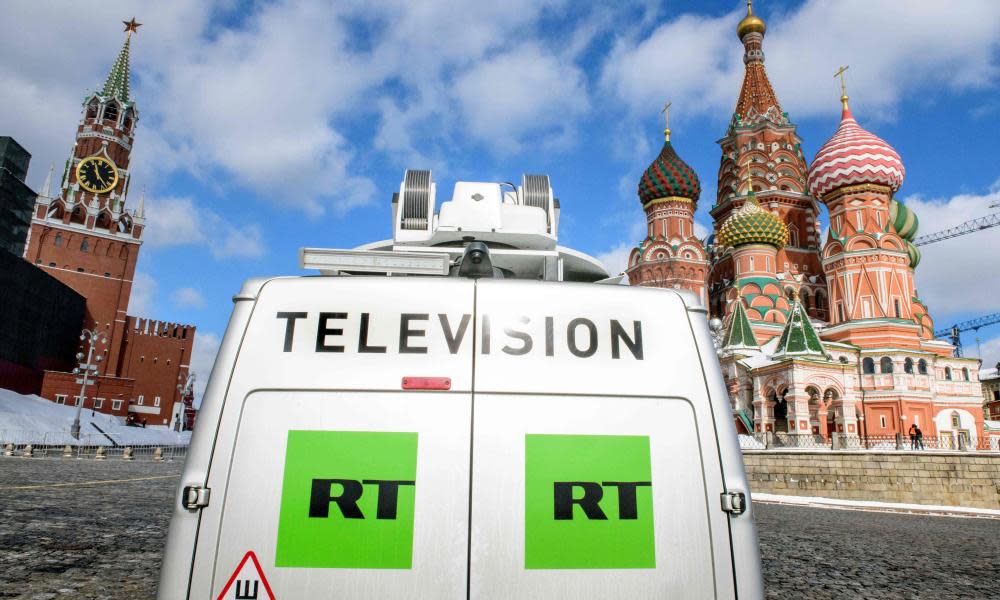If you talk about Russian propaganda, remember: Britain has myths too

When Edward Bernays, the father of modern propaganda, set out in 1928 to explain what it was, he cited not Pravda, or puff from the Weimar Republic, but the New York Times. His point – analysing the front-page stories on relief for China, Zionism in the Middle East, and a report by President Hoover on US living standards – was not that American newspapers were propaganda, but that everything was.
Bernays, inspired in part by the work of his uncle Sigmund Freud, was hardly a glowing example of best practice. He used his command of propaganda – described as “the conscious and intelligent manipulation of the organised habits and opinions of the masses” – for causes as diverse as civil rights, and persuading American women to spend more money on cigarettes. “Propaganda carries to many minds an unpleasant connotation,” Bernays wrote, “yet whether [it] is good or bad depends upon the merit of the cause urged, and the correctness of the information published.”
Almost a century later, we still misunderstand propaganda as something that only other, more evil people, organisations and states do – and none more so than Vladimir Putin’s Russia. The poisoning of Sergei and Yulia Skripal has brought renewed focus on what seems to us the remarkable perspective of the state-funded broadcaster Russia Today (RT), which paints the whole incident as either a deliberate attempt by Theresa May to frame Putin, or as British Russophobia gone mad.
But Russia is not the only state to practise propaganda – they are just doing it less well, I would argue. For a Russian MP to appear on Radio 4’s Today programme likening Theresa May to Hitler, and Poland’s former foreign minister to a “prostitute”, as the Duma member Vitaly Milonov did last week, or to suggest, as the Russian ambassador to Britain did on RT, that the Skripals’ poisoning is really a British effort to divert attention from Brexit hardly seems very convincing.
And if the ostensible point of RT is to bring more English-speaking people round to Russia’s way of seeing things, it’s bad propaganda, failing on its own terms. But the outrage surrounding the very fact that RT tries to push its narrative surprised me. Surely the desire to have the world see things from a host nation’s perspective is the job of state-sponsored global media. It’s the reason Britain developed its BBC World Service – initially, let’s not forget, called the Empire Service – and while the BBC and journalists like me who appear on the modern BBC certainly believe in its impartiality, that’s not necessarily how it’s seen abroad. The power of the model explains why so many more states are doing it, not least the rapidly expanding Turkish state international broadcaster TRT, and Qatar-funded al-Jazeera, all of which seek to bring a particular perspective rooted in the nations from which they are run.
‘History shall be kind to me, for I shall write it,' is a quote often attributed to Winston Churchill
You could argue that the media are failing on their own terms everywhere. Perceived propagandisation is one of the factors diminishing trust in them across Europe. Indeed, one study that found fewer than half of people in many European democracies now agree that they can trust most of the news, most of the time. But that doesn’t mean we are averse to a little propaganda of our own, especially when it comes to our history.
More of us than we knew may have been influenced in our voting choices by Cambridge Analytica and their ilk, and when it comes to the movies, Hollywood propaganda is on a roll. The former Telegraph editor Charles Moore is no leftie, but he describes the movie Darkest Hour – the Oscar-winning take on Winston Churchill’s achievement in overcoming the greatest wartime odds in 1940 – as a work of “superb Brexit propaganda”. I would call the film propaganda, more generally – and a great example of the kind of myth we like to promote in modern Britain. Churchill has been rebranded as a tube-travelling, minority-adoring genius, in line with a general understanding of him as “the greatest Briton of all time”. There’s a strange cognitive dissonance you experience working on the inconvenient parts of Churchill’s legacy – as I have been recently for a documentary I’m making. Two serious historians have told me in recent weeks in recent weeks that when they began researching less popular episodes in Churchill’s life, they were warned that doing so would either finish their careers, preclude them from promotion, or make them outcasts in academia.
And for a historian to state a set of facts about Churchill’s legacy in Bengal, Mesopotamia or Sudan, as David Olusoga did at a literary festival this week, is still regarded as a news story at best, at worst as a kind of unpatriotic travesty. Churchill himself, of course, was a grandmaster of propaganda. The quote so often attributed to him – “history shall be kind to me, for I shall write it” – comes, says one theory, from a boozy birthday dinner he had in 1943 with Roosevelt and Stalin.
Like most British people, I was raised in a country steeped in a sense of occupying the moral high ground, far too sophisticated and open-minded to conflate news and storytelling with propaganda. But that perception is hard to square with our tendency to attack anyone who offers a different narrative – albeit based on fact. I will probably suffer such a fate just for writing this column. One of the major differences between us and Russia is that you couldn’t have this debate about history and values there. What a shame it would be for us to waste the fact that we can.
• Afua Hirsch is a Guardian columnist

 Yahoo News
Yahoo News 
